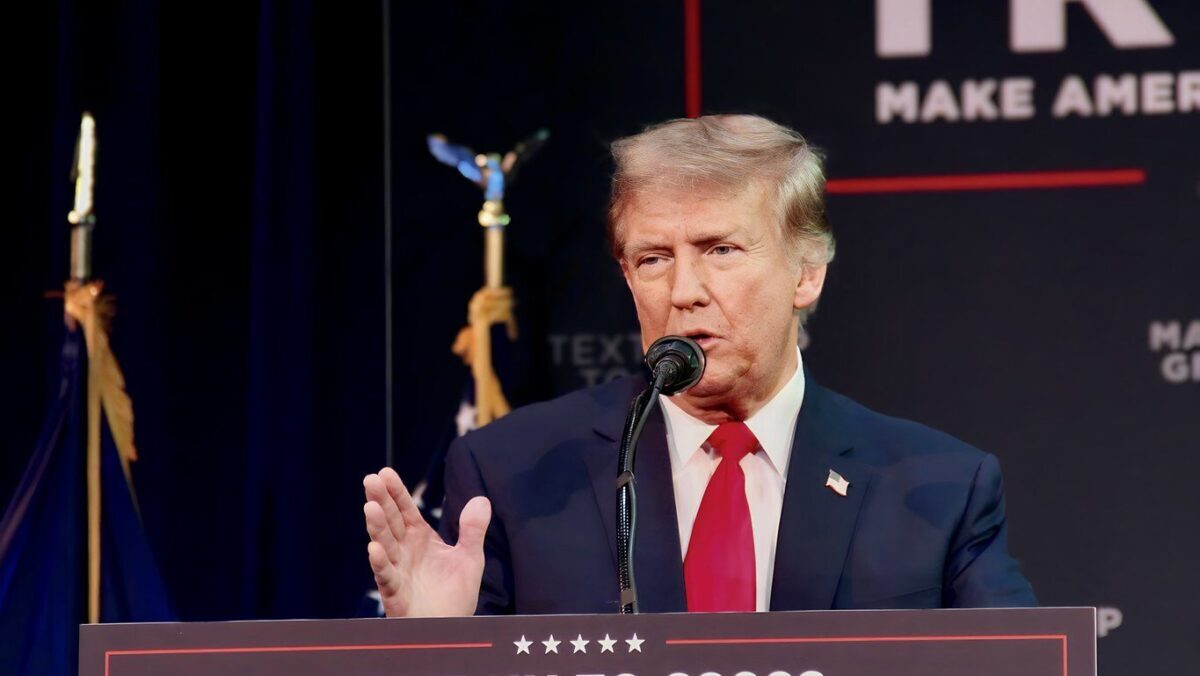Recent data indicates a significant increase in Google search results linking former President Donald Trump to terms such as "Hitler," "Nazi," and "fascist." This surge follows a series of political events, including an assassination attempt against Trump in July 2024, and has raised concerns about the implications of such rhetoric in American political discourse.
Explainer Charlie Kirk Overview
According to analysis normalized against the term "water" to account for overall search volume growth, the relative use of "Hitler + Trump" increased by 618%, while "Nazi + Trump" saw a 1,244% rise. Most notably, the pairing "Fascist + Trump" spiked by 2,572%. These figures reflect a trend of escalating language that critics argue could incite violence.
The context of this surge is rooted in a broader narrative that has developed since Trump’s election in 2016. Prominent figures on the left, including Hillary Clinton and Vice President Kamala Harris, have drawn parallels between Trump and historical authoritarian figures. Harris has referred to Trump as a "fascist threat to democracy," while Clinton likened his rallies to those of Nazi gatherings.
Chuck DeVore, chief national initiatives officer at the Texas Public Policy Foundation, noted, "The left pivoted to dehumanizing language after multiple impeachments and indictments failed to sideline Trump. This rhetoric serves to paint Trump and his supporters as existential threats."
Critics of this language argue that it undermines civil discourse and could lead to real-world violence. The recent assassination of Charlie Kirk, founder of Turning Point USA, is cited as a tragic example of how incendiary rhetoric can manifest into violent actions. Kirk was reportedly targeted by a suspect who had engaged with left-wing online communities where Trump was frequently labeled a dictator.
Data from the Center for Strategic and International Studies (CSIS) indicates that left-wing terrorist incidents have surged in 2025, outpacing right-wing attacks. The CSIS reports over 750 domestic terror events analyzed since 1994, showing a clear uptick in violence motivated by anti-fascist or socialist ideologies.
In contrast, some organizations, such as the Anti-Defamation League (ADL), maintain that right-wing violence remains a significant threat. However, critics of the ADL's methodology argue that it inflates right-wing threats by including unrelated incidents, thus distorting the reality of political violence in the U.S.
DeVore emphasized the importance of addressing this issue, stating, "Democrats must dial back the Nazi slurs, or we’ll see more tragedies like Kirk’s. Conservatives should respond with facts, not fury, defending free speech while calling out the left’s dangerous rhetoric."
As political tensions continue to rise, the implications of this language and its potential to incite violence remain a critical concern for many observers of the current political landscape. The challenge lies in fostering a discourse that prioritizes accuracy and civility over incendiary comparisons that could lead to real-world consequences.
Why it matters
- Surge in Google searches linking Trump to 'Hitler' and 'Nazi' raises alarms about political rhetoric and potential violence.
- Data shows a dramatic increase in incendiary language against Trump, reflecting a troubling trend in American political discourse.
- The assassination of Charlie Kirk highlights the real-world consequences of extreme political rhetoric and its potential to incite violence.
- Critics argue that dehumanizing language used by prominent figures could undermine civil discourse and escalate political tensions.
What’s next
- Calls for political leaders to moderate their language to prevent further violence and division.
- Ongoing investigations into the rise of left-wing terrorism and its implications for national security.
- Upcoming discussions on the impact of political rhetoric on public safety and civil discourse.
